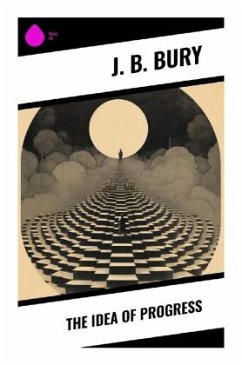In "The Idea of Progress," J. B. Bury critically examines the historical evolution of the concept of progress, particularly in relation to the Western world from the Enlightenment to the early 20th century. Through a meticulous blend of philosophical inquiry and historical analysis, Bury challenges the commonly held notion of linear progression in human society and knowledge. His literary style is marked by a clear, rigorous prose that underscores the theoretical implications of progress, while situating the discourse within the broader intellectual context of positivism and the Modernist critique of Enlightenment ideals. Bury deftly integrates various philosophical viewpoints, making it an essential read for anyone interested in the intellectual currents that shaped Western thought. J. B. Bury, a noted historian and scholar, was deeply influenced by the shifting tides of his time, particularly the traumatic consequences of World War I and the skepticism it instilled regarding uncritical faith in progress. His academic pursuits led him to reflect on the implications of historical change, societal evolution, and the human condition. This personal and intellectual backdrop profoundly informed his arguments, as he sought to dissect the complexities behind humanity's aspirations for improvement. This thought-provoking work is highly recommended for readers who wish to grapple with the intricate interplay of history, philosophy, and social theory. Bury's insights provide a framework for understanding not just the past, but the ongoing debates surrounding progress in today's world. It serves as a critical text for scholars, students, and anyone intrigued by the question of how we define advancement in human society.
Bitte wählen Sie Ihr Anliegen aus.
Rechnungen
Retourenschein anfordern
Bestellstatus
Storno








